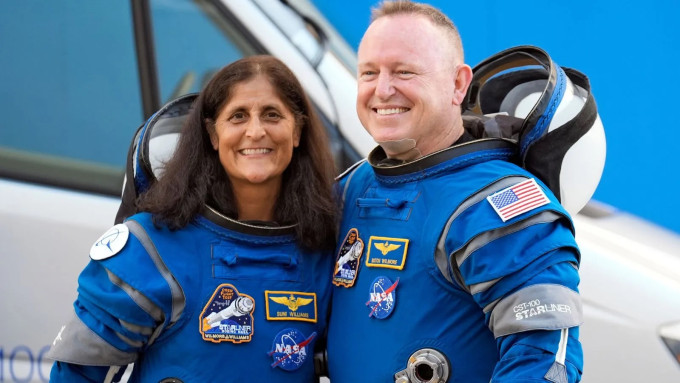Why Sunita Williams may face risk of DNA damage due to extended stay in space
Astronauts like Sunita Williams, who spend extended periods in space, face unique health challenges due to the harsh environment beyond Earth’s protective atmosphere.
According to Dr Niti Raizada, Senior Director – Medical Oncology and Hemato-Oncology at Fortis Hospital, Bangalore, one of the most significant risks that hasn’t been discussed yet is DNA damage caused by prolonged exposure to cosmic radiation and the effects of microgravity.

Though NASA closely monitors radiation levels, said Dr Shailesh Jha, Consultant Psychiatrist, Indraprastha Apollo Hospitals, but the extended duration of Williams’ mission raises concerns about cumulative exposure and its potential effects on cognitive functions and overall brain health.
How does this come about?
Cosmic radiation and DNA damage
Space is filled with cosmic rays, high-energy particles from outside our solar system, and solar radiation, which can penetrate the body and damage cellular DNA. Prolonged exposure to these rays can lead to mutations, increasing the risk of cancer and other genetic disorders.
Unlike on Earth, where the atmosphere and magnetic field provide a protective shield, astronauts in space are far more exposed to these harmful particles.
According to Dr Raizada, this radiation can cause breaks in DNA strands, leading to mutations during the repair process. Additionally, it can induce epigenetic changes, which affect gene expression without altering the DNA sequence directly.
 Research is ongoing into gene editing technologies and other advanced treatments that might help repair or mitigate the effects of DNA damage. (Source: file)
Research is ongoing into gene editing technologies and other advanced treatments that might help repair or mitigate the effects of DNA damage. (Source: file)
Microgravity and DNA repair mechanisms
Microgravity, or the near-weightlessness experienced in space, also plays a role in compromising the body’s ability to repair damaged DNA. In microgravity, cellular functions, including the DNA repair processes, are altered. This means that any DNA damage sustained in space is less likely to be effectively repaired, leaving cells more vulnerable to the long-term effects of radiation exposure.
Dr Raizada also notes that the long-term consequences of DNA damage from space exposure could include “accelerated ageing, potential reproductive issues, and telomere shortening,” which is linked to premature cellular ageing. Telomeres are protective caps on the ends of chromosomes, and their shortening is a marker of biological ageing.
How can these risks be mitigated?
To counteract the risks of DNA damage in space, astronauts like Sunita Williams engage in rigorous exercise routines and consume diets rich in antioxidants to help combat oxidative stress. NASA and other space agencies are also exploring advanced countermeasures, including inflight radiation shielding, protective gear, and even pharmaceutical interventions.
Research is ongoing into gene editing technologies and other advanced treatments that might help repair or mitigate the effects of DNA damage. While some damage may be irreversible, emerging technologies and careful management of lifestyle factors during space missions are critical in minimising health risks.
📣 For more lifestyle news, click here to join our WhatsApp Channel and also follow us on Instagram
Disclaimer: The copyright of this article belongs to the original author. Reposting this article is solely for the purpose of information dissemination and does not constitute any investment advice. If there is any infringement, please contact us immediately. We will make corrections or deletions as necessary. Thank you.

